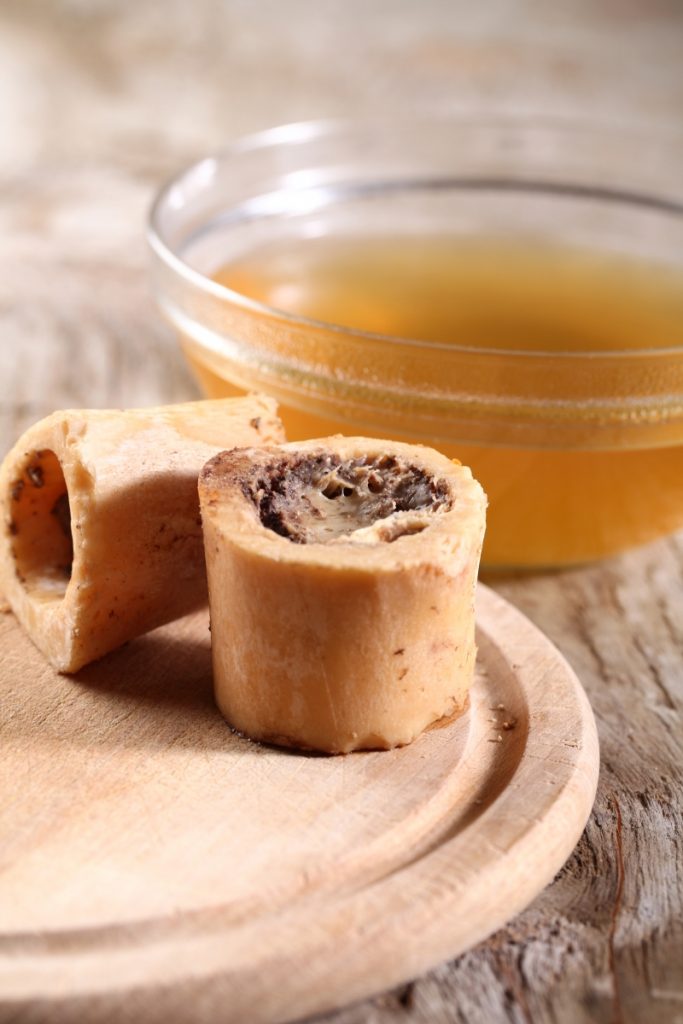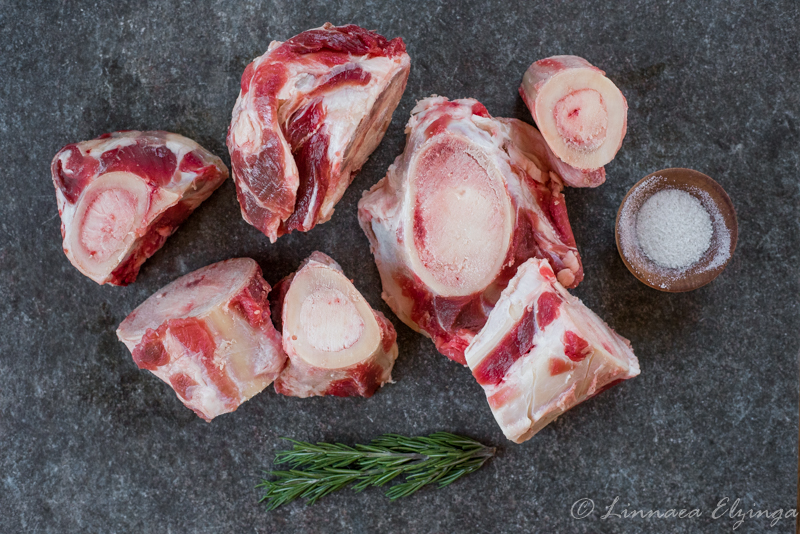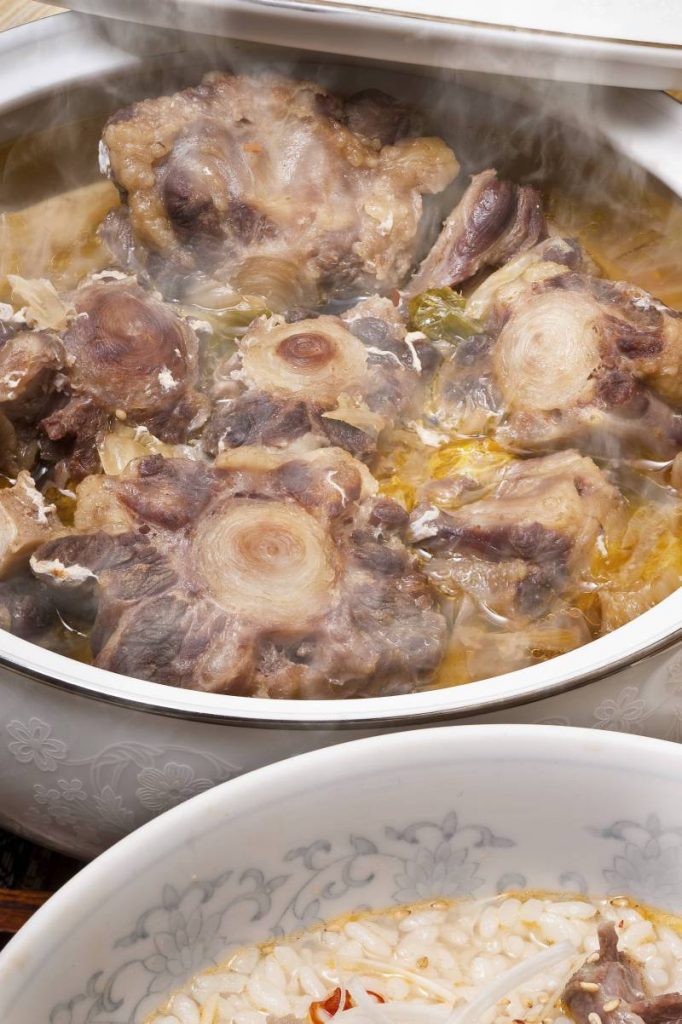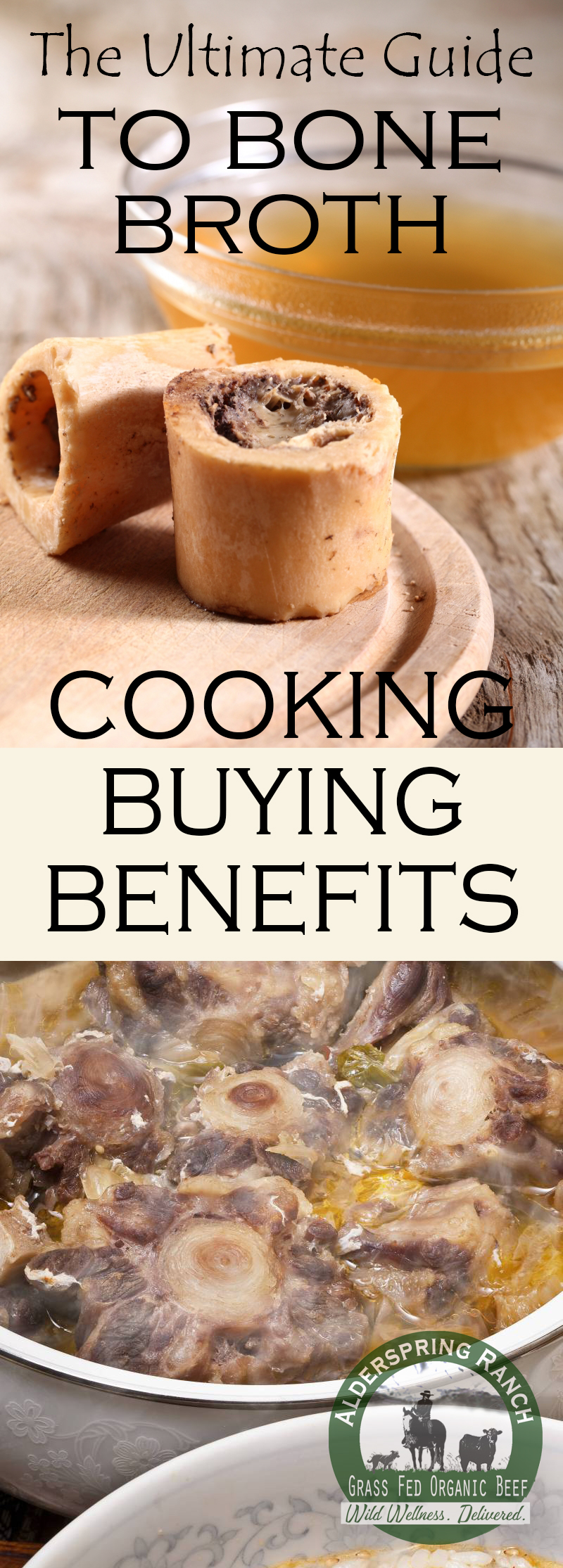Grass Feed Beef Bone Broth Benefits
Want to share this post or follow us?
In this article, guest poster Tanya Carwin tells you all about bone broth benefits and how to cook your own bone broth from scratch (it's easier than you think)! If you're looking for a formatted recipe to print, click here. Otherwise, read on for the info on bone broth benefits!

Homemade Supplement & Super Food: Bone Broth
Written by Tanya Carwin
Have you ever had truly made-from-scratch old-fashioned soup? Isn't it flavorful and fantastic? Want to know the secret? It is called "bone broth," or if you prefer a less direct term, "stock." It used to be every home had a pot almost perpetually simmering away on the back of the stove containing bones, water and other (sometimes unrecognizable) edibles. My own mother remembers her mom always having a pot of "gel" in the cellar (we are talking before refrigeration!). And the "gel" part is important, for to be a truly great stock it must solidify at room (or slightly below) temperature.
Okay, so, a good stock makes a good soup, great, but there is a lot more to bone broth than taste. For instance, according to many specialists, it can be helpful in treating over 50 diseases ranging from things like inflammation, hypertension, fatigue, depression, hyper activity, diabetes and food sensitivities. All those bone broth benefits, and it's cheap and easy to make, and wonderful to eat. Did I get your attention? Get your stockpot ready and read on.
What is it?
Simply put, bone broth is the liquid that results when bones are cooked in water. The use of stocks and broths has fallen out of practice in many modern households but it is still widely used in professional kitchens. Broths have been used through the ages as-easy to-digest nourishment and were prescribed for the sick and ailing, the very old and the very young as well as a staple in every kitchen.
What are organic grass fed bone broth benefits?
Broth can be seen as a medicinal tea made from bones, meat and the connective tissues that are often attached. By simmering bones in water you extract many constituents contained in them and make them available to the human body for easy absorption.

What is in it?
Cartilage
Cartilage is available in health food stores in the form of shark cartilage for people with osteoarthritis. It has been studied for joint disease and gastrointestinal disease. It has been found that cartilage dramatically improved degenerative joint disease, including rheumatoid arthritis, and improvement was also seen in inflammatory bowel disease. Cartilage supplementation also stimulates immune cells. Be sure to include cartilage-rich parts like chicken feet and beef knuckles, trachea and ribs, or hooves and skin.
Collagen or Gelatin
Collagen is a scientific term for a particular protein in the body, while gelatin is a food term referring to extracted collagen. It is usually encountered in powdered form, but gelatin also describes the collagen extracted into broth. Properly prepared broth will gel, just like Jell-O, when cooled, because collagen is rubbery and flexible. Most commercial gelatin today is extracted from animal skin. Bone broth differs from gelatin in that it also contains minerals and other beneficial nutrients (see below). Traditionally made stock uses bone and cartilage and produces a higher quality result. It also produces a safer result considering that commercial gelatin contains small amounts of monosodium glutamate (MSG).
Although it seems obscure today, gelatin has been studied and recommended, with great enthusiasm, by the medical community in the past. Gelatin is reported to improve the digestion of milk (and therefore it was included in infant formulas in the past), beans, meat and gluten-containing grains. It is also useful in both hyper and hypo stomach acid issues. It is healing and coating to the stomach and digestive track in general, making it useful in many GI conditions. Even when no other food is tolerated, such as in illness, or with cancer treatments, patients often do better when gelatin is added to the diet. In Traditional Chinese Medicine, gelatin is classified as a tonic herb, specifically used to tonify the blood.
Glycine
Glycine is the simplest amino acid. It contributes to the manufacturing of other amino acids and is incorporated into important structures in the body. It also contributes to other important processes in the body, including the ability of the liver to detoxify the system. Certain conditions increase our need for glycine, such as sickle cell anemia and pregnancy.
Additional studies have reported positive results with glycine for health conditions. This includes a strongly reduced risk of asthma and stimulation of gastric acid secretion, helpful in wound healing. Lastly, it has been stated that "the ability of the liver to perform protective synthesis is limited by the amount of glycine available."
Hyaluronic acid
Hyaluronic acid is strongly negatively charged, which allows it to attract and bond a large amount of water. Dr. Francis Pottenger, who researched gelatin in the 1930s, believed that this hydrophilic nature was at the root of gelatin's digestive benefits because it attracted digestive juices to the surface area of our food. Hyaluronic acid is viscous and slippery. It lubricates joints and helps in wound healing.
Chondroitin sulfate
Chondroitin Sulfate is a jellylike substance, now famous as an (expensive) supplement for joint pain associated with osteoarthritis. It lines blood vessels and plays a role in lowering atherosclerosis, cholesterol and heart attacks.
Minerals
Minerals are essential to life but they are not easy to digest. In the stomach, the presence of hydrochloric acid is necessary to physically break down food, but also to extract elemental minerals from the food that we've eaten. A similar reaction takes place in the making of broth. An acid is necessary to remove the minerals from the bone. This is the purpose of using vinegar when making broth.
Bone contains calcium and phosphorus, and to a lesser degree, magnesium, sodium, potassium, sulfate and fluoride. Bone is an excellent source of minerals. Many people in the USA are deficient in one or more minerals. This usually happens for one of two reasons; either by not getting enough in the diet or by not absorbing enough. Broth can be a remedy for both of these causes of mineral deficiency because it provides easily absorbed, extracted minerals, plus promotes healing of the intestinal tract.

How to make it
So now that you've heard about all the bone broth benefits, you're probably ready to make it! Bone broth is super simple to make. Even though it has to simmer for hours and hours it only requires a few simple minutes to get it started and finish it off. The most important thing for bone broth is to get high quality bones. In order of preference, get either wild, grass fed, organic, or at least all natural chicken, beef, pork or fish bones. (Note from Glenn: you can buy our grass fed, certified organic bones on our online store here).
Apparently, bone broth made from "supermarket chicken" will not gel. Bones left over from dinner are fine but you can also buy bones specifically for the purpose of making broth. I usually buy a whole chicken and simmer that for a few hours first. Then I remove the meat and return the bones, skin etc to the pot and simmer for 3-6 hours more. Beef bones give a nicer broth if they have been roasted in the oven first (375 degrees for 45 minutes or so) until browned (or use leftovers). So, put your bones in your stockpot and cover with fresh cold water. Add a splash of apple cider vinegar (to help extract the minerals from the bone). Now simmer for 3-24 hours. This will give a great stock.
To make it even better you can add any or all of the following: garlic, onions, vegetables like carrot and celery (ends, peels (if organic) or older ones are fine) and herbs. In the winter months I especially like to add astragulus and codonopsis to my broths. Both are Chinese herbs that help the immune system and are suitable for just about anyone (if you have an autoimmune disorder you may want to check with an herbalist first) and have a slightly sweet flavor that will only enhance your broth without overwhelming it.
After it has simmered enough, strain out the bones and vegetables and divide the broth into usable portions. It will stay good in the fridge for about 5 days (about 10 days if you boil it again after 5 days) and in the freezer for months.
How Do I Use Bone Broth?
Of course you can use it to make soups. You can also sip a cup of it for a snack or make a super quick soup by adding some veggies and ground beef. Another bone broth benefit is you can use it as a base for sauces and add it to any meals that you would otherwise add water to, for example; cook rice or other grains in broth, add it to chili, to pasta sauce, to savory baked goods as part or all of the liquid. I started making bone broth as part of my family's diet about a year ago, and I would not go back for anything. Meals have been tastier and healthier for minimal expense and time. When was the last time you could say that about a health food?
For a great cook book that includes a lot of information on bone broth benefits as well as recipes for bone broth, check out 'Nourishing Traditions' by Sally Fallon.
DISCLAIMER: The advice given in this column is not meant to treat or cure any disease. Thoroughly research any supplement, vitamin or herb you consider taking or consult with a knowledgeable clinical herbalist, naturopathic physician or other qualified healthcare professional.
BIO: Tanya Carwyn is an herbalist practicing in the greater Denver area. She is available by appointment for herbal and nutritional consultations at Highland Natural Apothecary on Tennyson Street. She lives in Englewood with her husband and their two daughters. Tanya can be reached at Tanya @ hwow.org
Reprinted with permission of the author.
Want to remember all these great bone broth benefits later? Pin this image to save it!

Want to share this post or follow us?
Source: https://www.alderspring.com/meathacker/broth-bones/
0 Response to "Grass Feed Beef Bone Broth Benefits"
Post a Comment